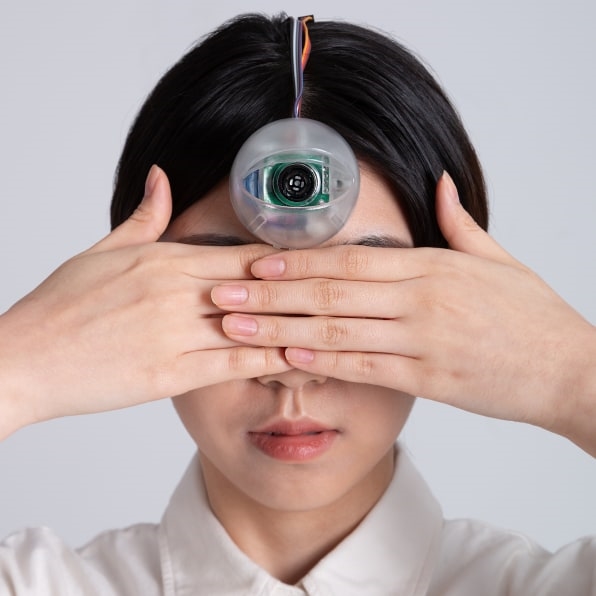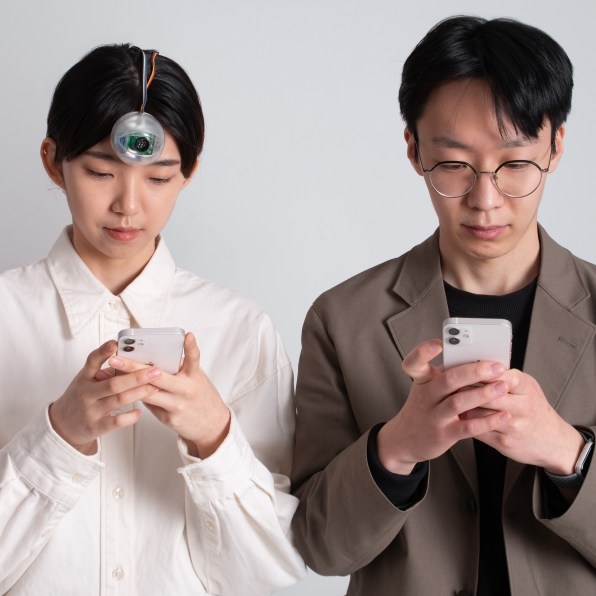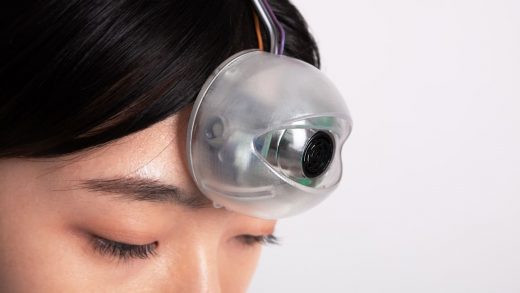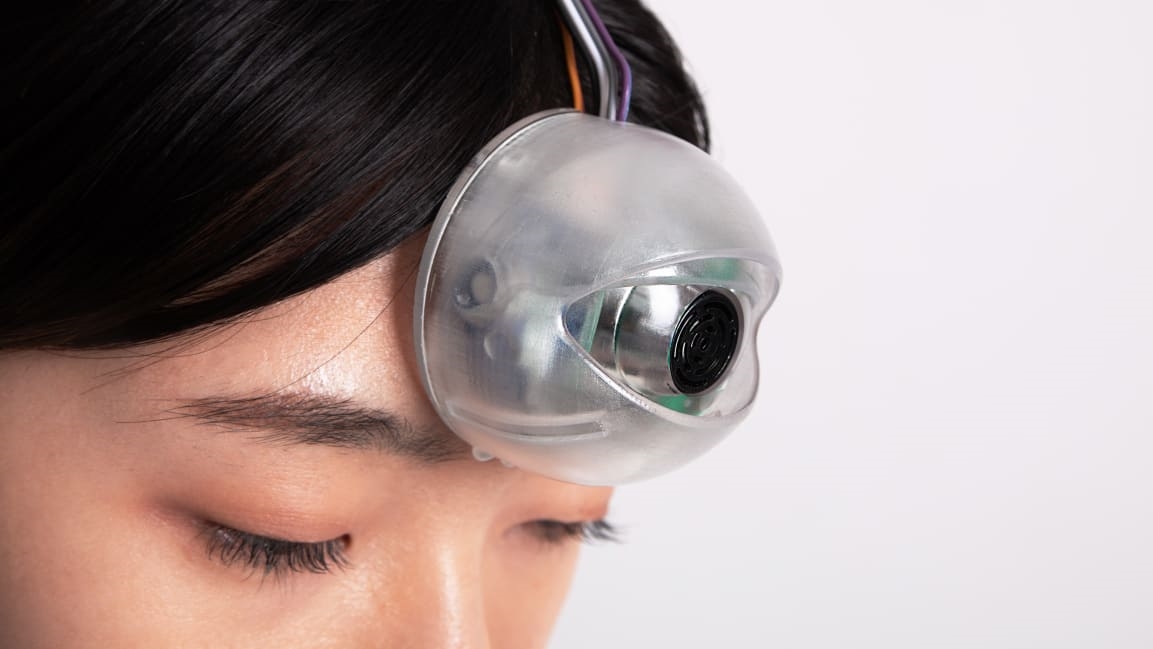Never faceplant again staring at your phone, thanks to this robotic third eye
We’re on our phones more than ever, distractedly looking down at our screens while navigating the world around us. The designer of a new device wants to draw attention to the perils of this behavior—before it’s too late.
Industrial design student Minwook Paeng’s developed a prototype robot eye called Third Eye, that attaches to a smartphone user’s forehead. The device uses sensors to alert the user when they’re about to run into something while looking down at their phone. Paeng decided to create the Third Eye as a satirical critique of just how deeply smartphones have fused with our everyday activities.

Third eye is a bulbous prosthetic eyeball and eyelid, its size and shape more closely resembling a Pixar monster’s eyeball than a human’s. It’s designed to help users be more aware when out and about and looking at their smartphone. The eyelid opens when your head is tilted down to look at your phone, and closes when your head is raised and you’re looking forward. There are cameras here. Sensors inside the device measure the angle of your head and acceleration, and a sensor in the pupil measures distance from objects in your path, which triggers an alerting noise when you’re about to bump into something.
In some sense, the future that Paeng is satirizing is already here. American adults spent about 3.5 hours a day on their phones in 2019. That adds up to nearly nine years over a lifetime. And teens spent over 7 hours a day on their phones in that same year. As of last April, average use ticked up to 4.3 hours a day.

In Paeng’s telling, we are quickly evolving into “phono sapiens.” “People from modern society find it difficult to live an ordinary life without smartphones,” says Paeng. You wake up with your smartphone alarm. You navigate using maps. You fall asleep to apps on your phone, whether Headspace or Netflix. We aren’t just attached to our phones. We’ve become one with them.
Paeng doesn’t see this as a good thing, but he suggests we need to view it more “positively so that we can face the situation we are in, objectively and critically,” he explains. He suggests that the absurdity of an assistive third eyeball might just get all of us to blink, and grasp a little bit more closely at our humanity.
(23)



